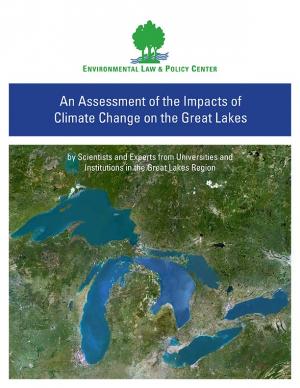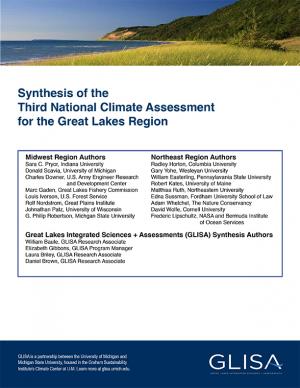Access a range of climate-related reports issued by government agencies and scientific organizations. Browse the reports listed below, or filter by scope, content, or focus in the boxes above. To expand your results, click the Clear Filters link.
Climate change is causing significant and far-reaching impacts on the Great Lakes and the Great Lakes region. This report, from 18 leading scientists and experts from Midwest and Canadian universities and research institutions, draws on the array of existing research to assess how the shifting global climate impacts the unique Great Lakes region.
This report provides educators and advisors information, perspective, and resources to help farmers in the Midwest and Northeast prepare for, cope with, and recover from the adverse impacts of a changing climate. Developed collaboratively by scientists, conservationists, and educators, the report translates the best available climate science into usable resources for making climate-informed decisions. Flexible and adaptive management are key to reduce risk, increase resilience to potential disruptions, and even take advantage of opportunities presented by climate change. The Adaptation Workbook provides a structured process to consider potential climate change impacts, management challenges and opportunities, and climate adaptation responses.
Intense rainstorms, floods, and heat waves will become more common in the Great Lakes region due to climate change in the coming decades. While ice-cover declines will lengthen the commercial navigation season on the lakes, warmer lake temperatures will increase risks from invasive species, and could threaten water quality. Material in this report is largely a synthesis of the information contained in the National Climate Assessment’s chapters on the Midwest (Chapter 18) and Northeast (Chapter 16). Donald Scavia, GLISA's co-director, was one of the convening authors of the NCA's Midwest regional chapter; GLISA also served as a hub for the compilation of technical inputs for the Midwest chapter.






